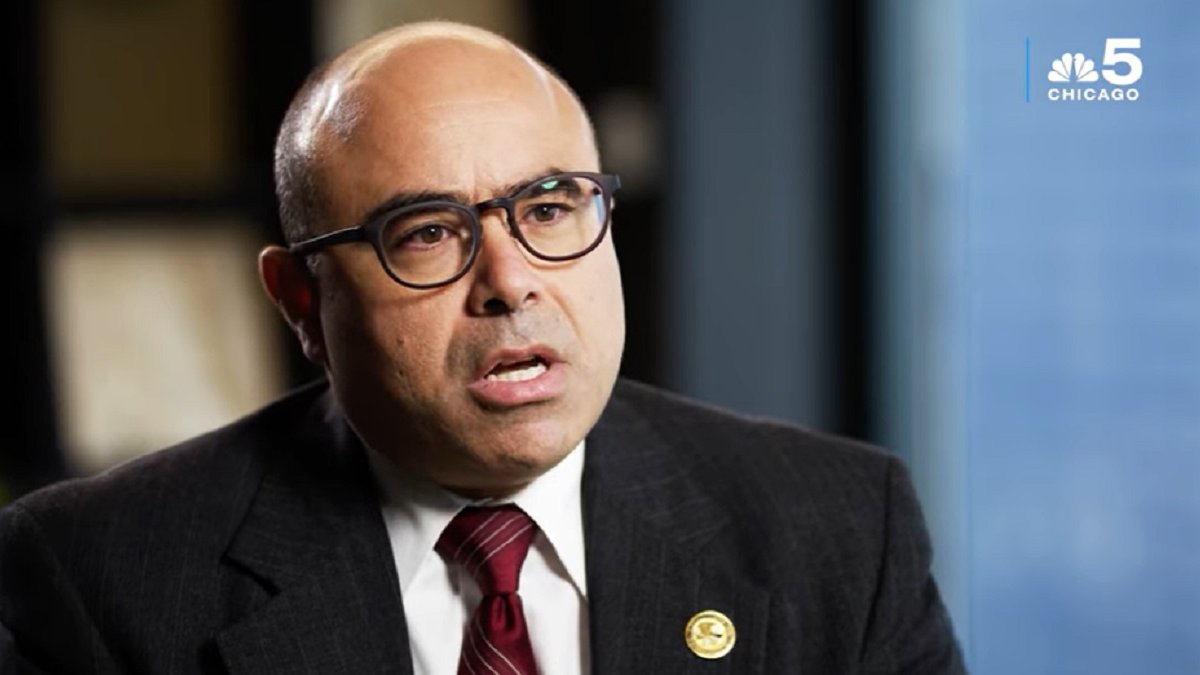During our exclusive hour with U.S. Attorney Andrew Boutros, he described himself as a “crimefighter” first. The wide-ranging, face-to-face conversation zeroed in on Chicago street violence, drug cartels, the Outfit and other organized crime, political corruption and human trafficking.
Watch Chuck Goudie’s full exclusive interview with U.S. Attorney Andrew Boutros in the player below.
And I asked him how he got the job in the first place, when he wasn’t on the official nominee list sent to President Donald Trump, who went off-list and named Boutros to the post last April.
“There’s no shortage of serious federal crimes for us to prosecute,” Boutros said during the Monday exclusive interview.
But Boutros said there has been a dreadful shortage of actual prosecutions in recent years. Judicial data Boutros cited shows the number of federal cases brought here before he took office put Chicago with the worst record in America. The city was 94th out of 94 federal judicial districts in key prosecution metrics such as total cases and cases per prosecutor.
“We’re doing a top-down review of everything to see what is working, what is not working,” Boutros said. “What can we do better?”
And there is another shortage at the Dirksen federal building according to Boutros: prosecutors themselves.
“We have less than 90, and that’s both in Rockford and in Chicago. We should have closer to probably 140,” Boutros lamented. “In the last half decade, there have been a lot of departures for various reasons to and including with those two and including the summer of 2020 — 20 and thereafter — and there just hasn’t been a lot of hiring. And so we’ve been running a deficit in terms of prosecutors. And the numbers are, we’re down about 40 to 50 prosecutors.”
Boutros commends those who are on the job, starting to do more with less — targeting drug violence, public corruption, human trafficking and criminal undocumented immigrants.
And a sneak preview of an upcoming initiative with the FBI to stop cartage thefts from freight trains by well-organized criminal groups.
“It’s obviously organized,” he said. “Twenty-five people don’t descend, Chuck, on a rail car area. And also know what is potentially in the rail car without either having an inside job or there being, you know, a pretty sophisticated amount of organization to it.”
There was only one question Mr. Boutros declined to discuss: why he was selected by President Trump, despite not being on the list of nominees prepared by Illinois Republican Congressman Darin LaHood.
“You know, Chuck, I’m just not going to get into that. I’m now the permanent US attorney. And so talking about the history and talking about that subject, I don’t think it gets us anywhere.”
GOUDIE: “Philosophically speaking, as a manager, do you want people to look at your office and say that’s Andrew Boutros US Attorney’s Office? Or do you want people to say that’s the Chicago US Attorney’s Office where Andrew Boutros is in charge?
BOUTROS: “Yeah, it’s the latter, obviously. I mean, this is the people’s office. This is the people’s office. I just happen to be sitting in that chair for this period of time, which is obviously in honor of a lifetime.”
Even with a diminished workforce, Boutros said caseloads and indictments are up significantly since he took office. And despite a hiring freeze at the justice department, Boutros said he’s obtained special permission from the DOJ to hire new prosecutors.
So with the help-wanted sign out, an internal memo obtained by NBC Chicago shows Boutros last week invited former and retired federal prosecutors to consider returning to the office and filling out a job application.
